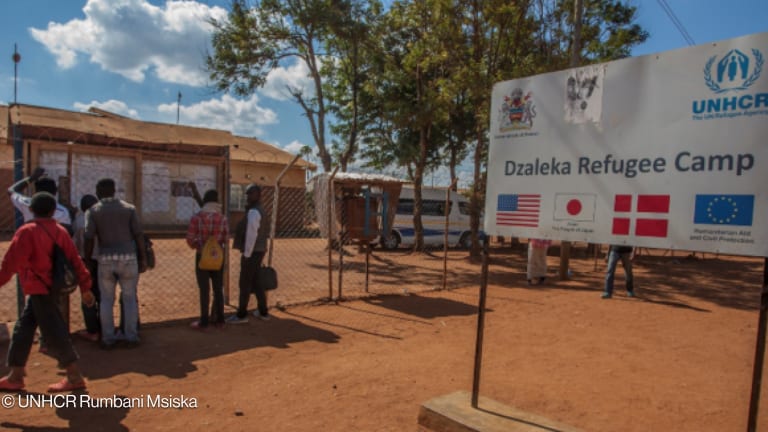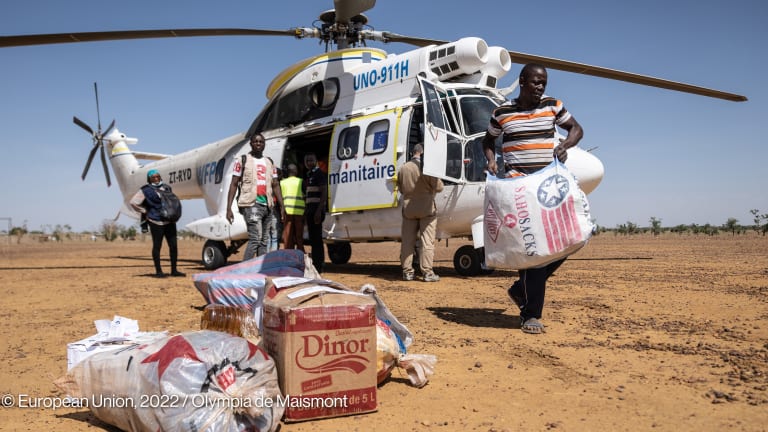
WASHINGTON — Because the crisis in Venezuela has reached such magnitude, international donors funding humanitarian aid services to those fleeing across the border to Colombia are no longer concerned that food and shelter are enticing people to migrate.
“There was a bit of a debate about ‘is it a push or a pull if we establish humanitarian assistance on the border or further away? Is that serving as a magnet to draw people out?’ That conversation is over now, because it’s very clear people are fleeing,” said Michael Fitzpatrick, deputy assistant secretary in the Bureau of Western Hemisphere Affairs at the United States Department of State.
See more related coverage:
► Colombia aid groups under strain as Venezuela crisis spills over
► Colombia conducts census of Venezuelan refugees as crisis deepens
“Things have changed dramatically, particularly in recent months.”
Due to economic mismanagement, Venezuela continues to suffer from extreme hyperinflation and lack of access to basic good such as food, medicine, and toilet paper. The crisis has resulted in the starvation of hundreds of children and disease outbreaks.
Fitzpatrick said that due to the worsening conditions, the U.S. has been ramping up its aid in response to the crisis. Last month, the U.S. announced an additional $16 million in funds that go to international organizations and countries in the region taking in large amounts of Venezuelans. Although no U.S. funds go to direct aid in Venezuela.
“The United States does not provide direct human assistance into any country without that government’s permission,” Fitzpatrick said, noting that the lack of access inside the country to conduct a formal needs assessment is hampering the ability to respond appropriately.
“That’s the other thing that the government of Venezuela is not letting the international community to do: Get in on the ground, do a proper needs assessment, and then figure out what are the proper channels so that the money and more importantly … food and assistance … reach those most in need. Without those conditions we’re not able to go directly in and provide that sort of humanitarian assistance.”
Aid is also arriving via informal channels, such as from the Venezuelan diaspora that send basic yet hard-to-find medicines and foodstuffs to family members, but those packages barely scratch the surface to the depth of need.
Spillover from the crisis is clearly stressing host countries, particularly Colombia and Brazil, that see thousands of Venezuelans walk across the border every day.
On Monday, at a special meeting of the Permanent Council of the Organization of American States in Washington, D.C., ambassadors of many nations expressed concern about the worsening conditions inside Venezuela and the reverberations within their own countries.
A Colombian representative to the OAS, Alvaro Calderón, asked the Venezuelan government to accept humanitarian assistance from Colombia and other countries. But in an example of the difficulties the international community has in getting Caracas to engage on the issue, the Venezuelan representative present at the meeting argued at the beginning of the session the council did not have standing to even be discussing the topic.
Calderon said the Venezuelan crisis needs more attention from the international community.
“International cooperation is fundamental and needs to be deepened. The OAS can play an important role,” Calderon said. “We have received aid from different sources, but that aid is not sufficient. We need to promote further solidarity and cooperation because this is an issue that encompses the entire region and it is important to manage these migratory channels.”
The situation in South America has been compared to the Mediterranean migrant crisis that saw boatloads of people arriving on the shores of Italy and Greece. Experts say something of similar, if not greater, magnitude is taking place in the Western Hemisphere but is not garnering as much attention.
“At the height of the European crisis, Italy was receiving in an entire year 180,000 people. Colombia is currently receiving every month 130,000,” said Chiara Cardoletti, UNHCR deputy regional representative to the U.S. and the Caribbean. “It’s doing it roughly on its own, opening up their communities, their services to Venezuelans. And the same situation is found in Brazil, in Peru, in Chile, in many other countries including in the southern Caribbean. Overall this is something that is very remarkable and is an incredible show of solidarity of the continent towards the Venezuelan people.”








